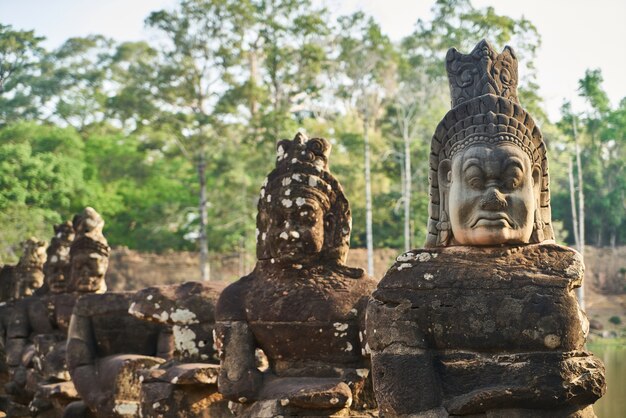

The concept of “free will” doesn’t fit comfortably with Buddhism. It is often highlighted in belief systems where a God rewards or punishes based on our choices between good and evil, necessitating the ability to choose freely. Interestingly, this concept also poses challenges within Christianity. If God is omniscient and knows every choice we will ever make, then our choices seem predetermined, negating true free will. Thus, God would reward or punish us for choices we had no control over.
Buddhism does not include the notion of a creator God. However, influenced by a culture steeped in Christian traditions, the question of free will sometimes arises as a significant issue.
Firstly, there is the question of whether our will can indeed be free. Secondly, if there is no consistent self to make choices, how can free will exist?
Buddhist practice is grounded in the idea that we can make choices, which aligns closely with the concept of free will. The first chapter of the Dhammapada, titled “The Pairs,” presents us with alternative choices, emphasizing the importance of our mental states:
– An impure mind leads to suffering, while a pure mind leads to happiness.
The Buddha implies that there are choices to be made, illustrating the process of making choices in other teachings, such as the Dvedhavitakka Sutta. Here, he shares how he categorized his thoughts into those leading to suffering versus those leading to well-being and consciously chose to abandon harmful thoughts.
This decision-making process stems from cetana, or intention, which the Buddha identified as karma. Therefore, karma is essentially our intention or choice, which shapes our character positively or negatively.
However, the Buddha recognized limits to our ability to make choices in any given situation. For example, consciousness is not self-controlled; it leads to affliction. We cannot simply decide to be happy or pain-free by force of will alone.
Our choices operate within a system of conditionality (paṭicca samuppāda), where specific conditions predictably lead to specific outcomes. We can make choices only within what is possible under these conditions.
Using a farming analogy, the Buddha explained that while we can perform the actions to facilitate growth, like planting and watering seeds, we cannot make the crops grow by sheer will. Similarly, cultivating the mind requires practicing ethics, meditation, and discernment.
The Buddha’s teaching is about freeing ourselves from suffering by making choices that lead to greater happiness. Through recognizing harmful mental states and choosing to abandon them, we reduce suffering.
The mind can predict future outcomes based on past experiences. The Buddha noticed that certain thoughts led to suffering and chose to drop them in favor of thoughts that led to well-being.
Though our choices are influenced by existing conditions, there is always some freedom. For example, while we may feel compelled to engage in harmful behaviors like binge eating, we also have the potential to choose differently based on changing conditions and growing awareness.
The Buddha emphasized freedom from suffering rather than the freedom to do anything we want, acknowledging that our choices are constrained by past conditions.
The notion of anatta, or not-self, speaks to the idea that we cannot control consciousness or other aspects of our being because we don’t have a permanent, unified self that makes decisions consciously. Our perceived self is ever-changing and interconnected with the world, and our thoughts and choices emerge outside of conscious awareness.
In summary, free will is an important concept in certain belief systems that revolve around divine reward and punishment. However, it conflicts with observable facts of conditionality. Choices are not entirely free and are influenced by past conditions. The goal in Buddhism is not to assert free will but to make wise choices within the limits of what conditionality allows to achieve freedom from suffering.
There’s no need to reconcile Buddhism with the concept of free will. Instead, the focus should be on understanding that choosing wisely can lead to greater happiness and reduced suffering. The critical kind of freedom is from suffering, not the unrestricted freedom to do anything, which isn’t possible within the constraints of our existence. Therefore, the concept of free will is considered irrelevant and an illusion in this context.
We don’t possess free will in the conventional sense, but Buddhism provides us with the tools and understanding necessary to achieve freedom from suffering, which is the essential goal.